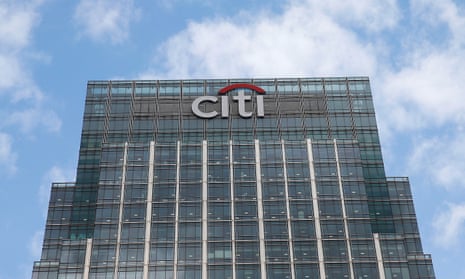The US bank Citigroup has said that one of its traders made an error when European stock markets suffered a “flash crash” on Monday.
Trading was briefly suspended in several European markets on Monday morning, after leading share indices recorded sudden steep declines. One of the hardest hit was Sweden’s benchmark OMX 30 index, which fell by nearly 8%, but recouped most of the losses and ended the day 1.9% lower.
The Europe Stoxx 600 index of Europe’s leading shares lost as much as 3% before closing down 1.5%. The UK stock market was closed for a bank holiday.
“This morning one of our traders made an error when inputting a transaction,” the New York-based bank said in a statement on Monday night. “Within minutes, we identified the error and corrected it.”
Flash crashes, or brief price collapses, can be caused by human error. They can be caused by “fat finger” errors – referring to someone mistyping the details of a trade – and have become more common with the rise of high-frequency trading firms.
One of the biggest flash crashes happened on 6 May 2010, when the Dow Jones on Wall Street lost almost 9% of its value within minutes, and hundreds of billions of dollars were wiped off share prices. However, the market quickly regained its composure and eventually closed 3% lower. An official report by the two main US regulators pointed to a $4.1bn (£2.7bn) sell order instigated by a US mutual fund, which used an automated algorithm trading strategy. This had a “hot potato” effect.
In 2020, Citi accidentally wired $900m of its own money to creditors of the cosmetics group Revlon.
